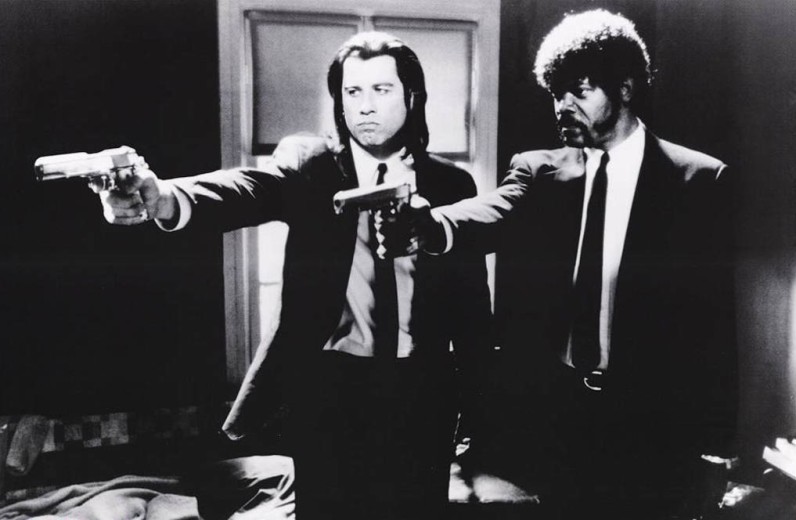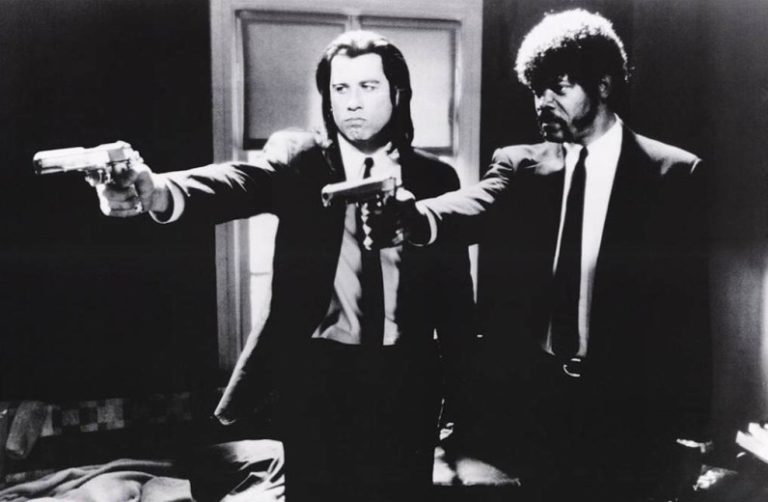Pulp (pulp) n. 1. A soft, moist, shapeless mass of matter. 2. A book containing lurid subject matter, and being characteristically printed on rough, unfinished paper.
Celebrating its 10 year anniversary, I sat down and watched this classic again to see if it really was as good as I thought it was. The answer, yes. Pulp fiction is an incredible movie that kicked off a new breed of movie, movie’s that are tangled into a nonlinear web that somehow make perfect sense while maintaining suspense and mystery.
A biblical reference that comes up frequently by one of the gangsters that is played by Samuel L. Jackson, named Jules. He usually mutters this before he kills his victim, but one day, someone shoots at him and he believes he should have died, but there was divine intervention that saved him. So Jules turns his life around, but right before all is said and done he encounters a robbery that was the starter of the movie, but led up to the end. Confusing, I know. Keep in mind though; it does work out smoothly in the movie to form a masterpiece.
Jules is just one character, and he works along side Vincent, (played by John Travolta). They work for a mob boss named Marsellus Wallace, whom Vincent takes out on a date, or just a night on the town. Most of the movie has to do with Marsellus some way or another, but the beginning and the focuses on two robbers that are completely separate from Marsellus and his “gang.”
Christopher Walken plays a war veteran who gives the viewer the only laugh throughout the movie with a delightfully detailed account of how Mr. Coolidge’s watch was stored during the war. Other funny parts a viewer should notice are those containing certain subjects like, Foot massages, hamburgers, comfortable silence, a gold watch, pot bellies, divine intervention, and filthy animals that are brought up in ridiculous detail.
Tarantino clearly makes movies for movie lovers, and this one could be his most famous and incredible work.




